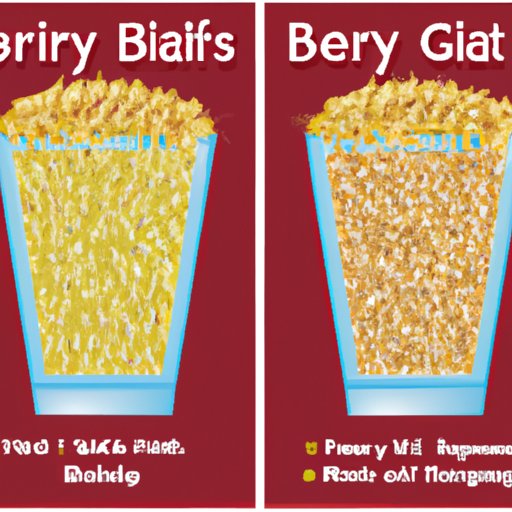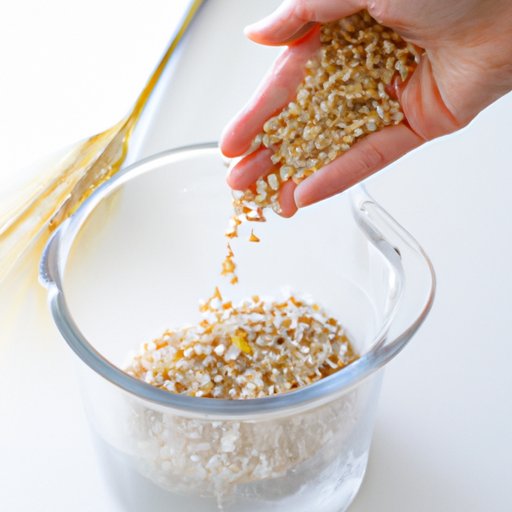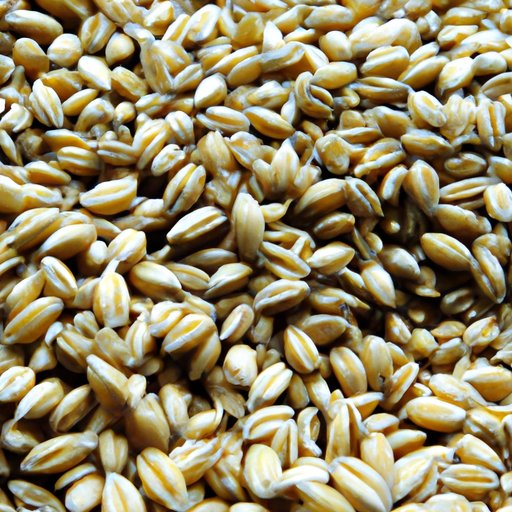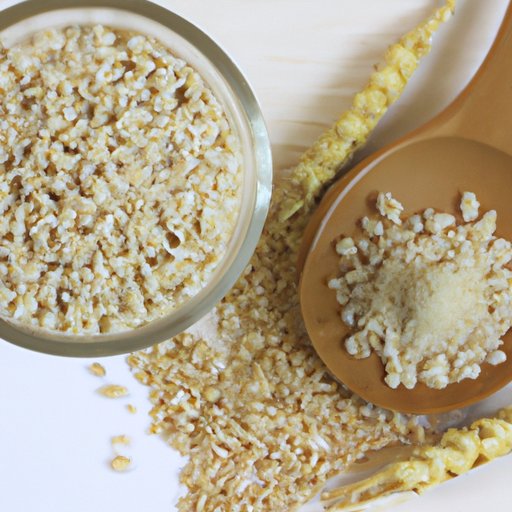Introduction
Barley is a cereal grain that has been around for thousands of years. It is a member of the grass family and is closely related to wheat, rye, oats, and other grains. It is most commonly used to make beer, but it can also be used to make flour and other products. Barley has long been recognized as a healthy food, and recent research has shown that it can provide many important health benefits.
Examining the Nutritional Benefits of Barley
Barley is an excellent source of macronutrients, phytonutrients, and fiber. It is rich in carbohydrates, protein, and healthy fats. It is also a good source of B vitamins, vitamin E, magnesium, and iron. In addition, barley contains a wide variety of phytonutrients, including flavonoids, phenolic acids, and lignans. These compounds have been linked to a number of health benefits, such as improved heart health and reduced risk of certain cancers.
Barley is also high in dietary fiber, which can help to promote regularity, reduce cholesterol levels, and regulate blood sugar levels. One cup of cooked barley contains about 6 grams of dietary fiber. This is about 25% of the recommended daily value for adults.
Exploring Barley’s Role in Weight Loss
Barley can be a helpful part of any weight loss plan. It is low in calories, with one cup of cooked barley containing only 193 calories. Barley is also very filling, so it can help to keep you feeling full longer. This can help to reduce cravings and prevent overeating.
In addition, barley has a low glycemic index, which means that it is slowly digested and absorbed by the body. This helps to prevent spikes in blood sugar levels, which can lead to increased hunger and cravings. Eating foods with a low glycemic index can help to control appetite and aid in weight loss.

The Pros and Cons of Eating Barley
While there are many health benefits associated with eating barley, it is important to be aware of the potential drawbacks. For example, barley can be allergenic for some people. Additionally, barley contains gluten, so it is not suitable for people with celiac disease or gluten sensitivity.

How to Incorporate Barley into Your Diet
There are many ways to incorporate barley into your diet. It can be used in soups, stews, salads, and casseroles. It can also be used to make breads, muffins, and other baked goods. Most grocery stores carry barley in the bulk section, or you can buy it pre-packaged. Barley flakes, pearled barley, and hulled barley are all available.
Comparing the Health Benefits of Barley to Other Grains
When comparing the health benefits of barley to other grains, it is important to consider the nutrient profile. Barley is higher in protein and fiber than most other grains, and it has a lower glycemic index. Additionally, barley is a good source of vitamins and minerals, including vitamin A, vitamin B, iron, and magnesium.

Barley as a Source of Vitamins and Minerals
Barley is a good source of several essential vitamins and minerals. It is particularly rich in vitamin A, which is important for vision and immune system health. It is also a good source of vitamin B, which is necessary for energy production and metabolism. Additionally, barley is a good source of iron, which is important for red blood cell formation, and magnesium, which helps to regulate blood pressure.
Cooking with Barley: Recipes for Health and Wellness
Barley is a versatile grain that can be used to make a variety of delicious and nutritious dishes. Here are a few recipes to get you started:
Breakfast Recipes: Barley and Banana Porridge, Barley Muffins, Barley Pancakes
Lunch Recipes: Barley Salad with Feta and Olives, Barley Soup, Barley Bowl with Vegetables and Hummus
Dinner Recipes: Barley Risotto with Mushrooms, Barley Stuffed Peppers, Barley and Lentil Curry
Snack Recipes: Roasted Barley Snack Mix, Barley Crackers, Barley Smoothie.
Conclusion
Barley is a nutritious grain with many health benefits. It is high in macronutrients, phytonutrients, and fiber, and it has a low glycemic index. It is also a good source of vitamins and minerals, including vitamin A, vitamin B, iron, and magnesium. To get the most out of barley, it is important to incorporate it into your diet. There are many delicious recipes that can be made with barley, from breakfast, lunch, and dinner recipes to snacks and desserts.
In conclusion, barley is an excellent choice for those looking to improve their overall health and wellness. It is a nutritious grain that can help to promote weight loss, reduce cholesterol levels, and regulate blood sugar levels. With its versatility and variety of health benefits, barley is worth adding to your diet.
(Note: Is this article not meeting your expectations? Do you have knowledge or insights to share? Unlock new opportunities and expand your reach by joining our authors team. Click Registration to join us and share your expertise with our readers.)
